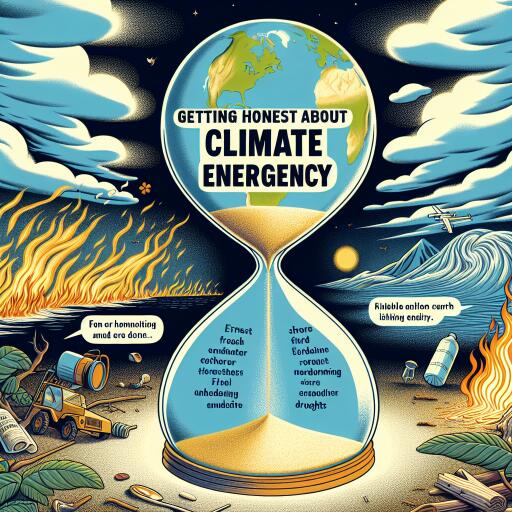
Editorial: Getting Honest About Climate Emergency
As we stand at the crossroads of an environmental crisis, climate change emerges as our most formidable adversary. In the Mediterranean basin, we witness the stark reality of temperatures escalating 20 percent faster than the global average.
This troubling trend is already manifesting significant impacts across the region, and the situation will intensify unless we confront the climate emergency with transparency and urgency.
A sobering study published in a leading scientific journal suggests that if global temperatures surge by up to 4°C, Malta could endure a rise in heat-related fatalities, reaching 269 per 100,000 individuals by 2095. This rate would almost triple from the start of the 21st century, highlighting Malta as the most climate-vulnerable nation in the Mediterranean.
The gravity of the situation is further underscored by other scientific predictions. The World Wildlife Fund anticipates that a temperature uptick of 2°C to 4°C could slash precipitation in Southern Europe by up to 30 percent.
Despite this looming threat, many world leaders appear disconnected from the harsh realities of the climate crisis that jeopardizes global societal well-being.
Escalating temperatures will place an extra burden on fragile ecosystems and struggling economies in the Mediterranean. Critical areas such as agriculture, tourism, public health, marine biodiversity, and water resources, essential for food security and survival, will be severely affected.
To counteract this trajectory, immediate and comprehensive actions are essential to curb greenhouse gas emissions and adapt to an increasingly warm planet. Nonetheless, many political figures seem content with postponing significant efforts, leaving future generations to grapple with these challenges.
The recent political dynamics in the United States under the leadership of their newly elected president mark a regression in climate action. Recent decisions have seen the U.S. withdrawing from international climate agreements, prioritizing fossil fuel expansions, and encouraging aggressive drilling practices.
Meanwhile, disheartening signs of wavering commitment to climate goals are emerging within the European Union, with economic concerns overshadowing environmental objectives.
The European Commission has rolled out the Competitive Compass, a broad framework aimed at economic momentum through simplifying bureaucracy, yet critics warn it could undermine the EU’s green aspirations.
Additionally, there have been calls within the EU to delay key environmental regulations, potentially compromising the fundamental acknowledgment of climate risks facing European communities.
Although Malta, as a small nation, might seem inconsequential in impacting global climate trajectories, it remains crucial to contribute to the effort, regardless of whether larger entities like the U.S. and EU are hesitating in their leadership roles.
Pursuing the EU’s environmental goals for 2050 with unwavering resolve is paramount to demonstrating that current political leaders are genuinely invested in the future well-being of coming generations.
The apparent lack of progress toward meeting these goals remains a heavy burden, weighing down political leadership.
The scientific evidence is unequivocal, and the climate emergency targets, though ambitious, are necessary. It is imperative that we muster strong political leadership to confront the significant challenge that lies before us.
Addressing this crisis with vigor and transparency is not just a political responsibility but a moral imperative to safeguard the planet for future inhabitants.
In conclusion, honest discourse and decisive action are essential in navigating the climate emergency we face, ensuring that we do not bequeath a compromised planet to those who come after us.





Leave a Reply